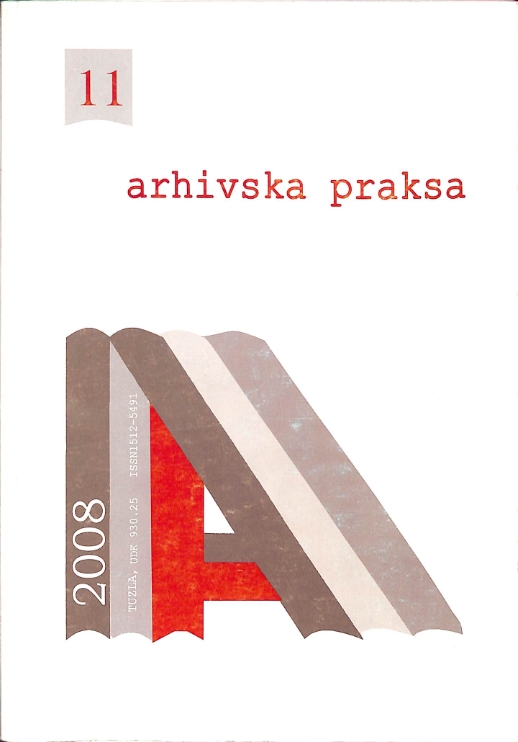
AKTUELNI PROBLEMI ARHIVSKE TEORIJE I PRAKSE KOD STVARALACA
Registry material that's being created today on different kinds of data carriers has the same status and falls under the same established procsses of protection measures, management and use of the material. Regardless of data carriers, archival material has a character of a permanent material and it is significant for science and culture, hence it should be given to the archive for safekeeping after 30 years.One of the primary task of archival services is creating of organized archival service at material's makers, which should create a basis for defined system of archival activities not only while the material is in posession of its makers, but also in the• 1ater stages. The archival service must, in accordance with the legislation, establish a defined system for dealing with a documentation while it is in a working progress (in use), and conduct all necessary professional and organizational measures in phase of archival dealings with goal to preserve archival material. For successful operating of archival services and preservation of any archival material it is paramountto ensure legal, educational and material conditions, since they are the basic of the preservation of archives.
More...